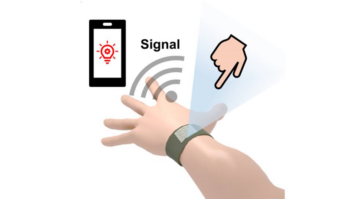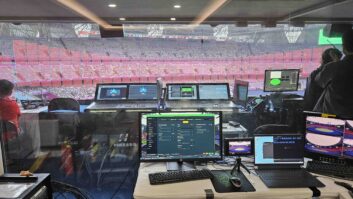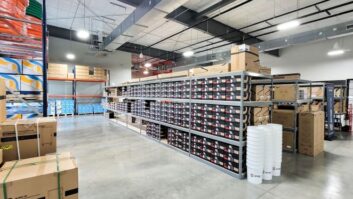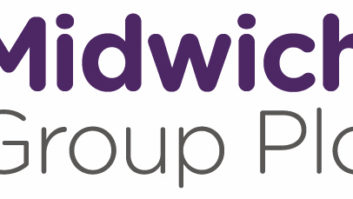Locatel provides a wide range of entertainment, connectivity and productivity technology solutions for the hospitality sector. With the stakes high for hotels to obtain their share of the lucrative meeting planners’ budgets, Locatel CEO Pierre Lestage (left) advises on the market needs and the three key steps in providing state of the art technologies for hotel meetings and teleconferencing. The market needsThe frequent business traveller expects to arrive in a hotel and set up shop for work immediately – with no fuss, no hassles and no technical problems. Our recent survey via researchers OpinionWay backs this up, showing that high quality reliable Wi-Fi is a “must have” for over 86% of business travellers when choosing a hotel. They want access to all the information at their fingertips whether through the TV screen, their laptop or mobile device. Besides solo travellers, we see the same expectations and more for those organising meetings and conferences in hotels. These off-site meetings require their own web portal for all delegates where they can log in securely, with dedicated bandwidth and IP address management, where they can communicate and share all the documents online that that they need. Besides this Virtual Private Network (or VPN), meeting organisers need online support to help them with all pre-meeting logistics and technical matters, as well as reporting and billings options. When meetings need to take place virtually, the next best thing to a face-to-face meeting is a high quality teleconferencing system. But how exactly can hoteliers and their interior architects put these kinds of systems into place?@page_break@
The infrastructure For hoteliers that want to be able to offer meetings organisers a true state-of-the-art system, complete with video-conferencing and VPNs, they need an internal IP-based infrastructure in order to handle the amount of two-way flow of data required. All new-build hotels are now equipped with IP infrastructures and for older properties that do not yet have this it should be a priority to put into place when designing or upgrading meetings rooms. At the risk of preaching to the converted, the benefits brought by IP networks in terms of reducing internal telephone call costs, means that the systems rapidly pay for themselves. Nearly all hotels these days are connected to the outside world by IP networks, which means that all connection and information matters can be remotely managed by the service provider – so there is no need for a server on the premises. However, if this is not the case there are ways to resolve this, including for example an on-site media gateway. A one-stop supplier such as Locatel will be able to advise fully on all infrastructure requirements. The hardware Moving on to the ‘hardware’, the acquisition of hotel TV screens needs to be considered carefully. Architects and purchasers should consult with their technology supplier who will be able to advise them on which makes and models will be able to support their needs and, importantly, be fully compatible with all of their systems and the services they want to offer. Surprisingly this is not always the case with all the ‘connected’ or ‘smart’ TVs on the market.
The same applies to the purchase of hardware for teleconferencing. Normally this will be integrated into one piece of equipment which incorporates the screen, a remote-controlled camera, voice activated multi-directional microphones and loudspeakers. The supplier should also be able to help negotiate a better deal by making it part of an overall package. After sales service and supportOne thing that meetings and teleconferences have in common, is that with the logistics of getting people around the table (or the virtual table), delays caused by technical hitches are unacceptable. If intervention or advice is needed, then it needs to be immediate. Most technical issues or questions can be resolved more rapidly when remotely managed by the supplier. As the quantity of information and communication needs evolve, the system also needs to be futureproof in terms of capacity and flexibility, as well as interoperability with new systems, services and mobile access devices. A system integrated and managed by experts in the domain can easily anticipate and reply to these needs. As the former boundaries between communications in all their forms – audio, visual, data – become more blurred, and as users need to access all information on multiple devices whether TV screens, laptops, smartphones or tablets, it becomes logical to choose a single supplier for information and communication technology needs. For hotels, meetings and teleconferencing technologies need to form an integrated part of their solution. www.locatel.net
Technology trends – hotel facilities for meetings and teleconferencing
With the stakes high for hotels to obtain their share of lucrative meeting planners’ budgets, Locatel CEO Pierre Lestage advises on the market needs.







